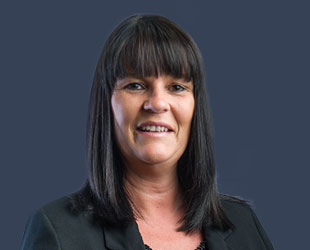- Swansea (Main)01792 773 773
- Caerphilly02920 860 628
- Cardiff02920 225 472
- Carmarthen01267 234 022
- Cowbridge01446 771 742
- Haverfordwest01437 764 723
- Rural Practice01267 266 944
- St Davids01348873671
- Please note that all phone calls are recorded
A Guide to Buying Commercial Property
Buying commercial property can be a good investment, whether you are doing so to secure business premises or as part of your investment portfolio. That said, there are a whole host of issues you need to be aware of to enable you to get the right property on the right terms for your goals.
This guide is intended as an overview of the key things business owners and commercial property investors need to know when thinking about buying commercial property. It covers:
- How to choose the right commercial property for your needs
- Freehold versus leasehold – what’s the difference and why does it matter?
- The costs of buying commercial property
- Financing for commercial property
- Buying commercial property through a limited company
- How commercial conveyancing works
This guide is intended for general informational purposes and should not be taken as specific legal advice. If you are planning to make a commercial property purchase, we strongly recommend speaking with one of our expert commercial property solicitors for personal advice tailored to your requirements.
Speak to our commercial property solicitors in South Wales
To speak to our expert commercial property lawyers in South Wales, please contact your local JCP Solicitors office or use our contact form to ask a quick question or arrange a call back.
-
- Mark Gilroy
- Director & Head of Commercial Property
-
- Carys Wilson
- Director - Commercial Property
-
- Jenna Birch
- Senior Associate Solicitor - Commercial Property
-
- Joseph Hawkins
- Associate Solicitor - Commercial Property
-
- Rasha Jassim
- Associate Solicitor - Commercial Property
-
- Emma John
- Associate Solicitor - Commercial Property
-
- Eleri Roebuck
- Deputy Team Leader - Commercial Property
-
- Richard Beech
- Ambassador
-
- Chris Davies
- Consultant - Commercial Property
-
- Ruth Dalling
- Legal Assistant - Commercial Property
-
- Ben Cresswell
- Legal Advisor - Commercial Property
-
- Samantha Evans
- Legal Secretary - Commercial Property
-
- Helen James
- Legal Secretary - Commercial Property
-
- Lisbeth Barry
- Trainee Solicitor - Commercial Property
Choosing the right commercial property
When looking to buy commercial property, it is important to carefully think through all of the relevant factors that should influence your decision. This way, you can be confident of getting a property that meets your immediate needs and will be a good investment long term.
Key points to consider when buying commercial property are:
Why are you buying the property? It might seem an obvious one, but a lot of people lose sight of their true goal when the time comes to make a purchase. If you are buying business premises, fully consider the current and likely future needs of your business when choosing a property. Looking to make an investment? Do your research and make sure you know how the value of the property is likely to change and where you can add value.
What is your budget? Again, this should be an obvious one, but all too often people get carried away and stretch to something that is outside of their original budget. This can leave you with more debt that you really wanted and end up costing you dearly if you later struggle to cover the repayments following an economic downturn or other problems.
What other costs will you have to pay? This can be a particular problem for those looking for business premises, as the additional costs, such as insurance and business rates, can quickly stack up. Something that catches out many new businesses is where their local council offers a business rates discount for their first few years of operation. This can make a particular location more attractive and affordable, but you need to have a realistic plan for how you will meet the full business rates when they kick in.
Can you afford the deposit? Just as when you are buying a house to live in, you will normally have to pay a deposit to buy a commercial property. With lenders being more cautious around property finance in recent years, it is likely you will need a deposit of at least 20%.
Have you sorted out your property finance? Getting the right commercial property finance in place is as crucial as finding the right property. The repayment costs will likely be a significant business expense for years to come, so you need to be smart about how much you commit yourself to repaying each month. Lenders may want to see a copy of your business plan before agreeing to lend, so this will need to be spot on to secure their approval.
Are there any problems with the property and what will they cost you? While a property might seem perfect on the surface, there can be all sorts of hidden issues that could end up costing you a lot of money in the future. It is essential to have an experienced solicitor carry out commercial conveyancing checks to identify any potential problems, such as new developments in the local area, as well as having a qualified surveyor check for issues with the building itself. This can help you avoid any nasty surprises when it is too late.
What can and can’t you do with the building? When buying a commercial property, you might assume you can do whatever you want with it, however that is a very dangerous assumption to make. There are very often restrictions in place on how you can use, develop or otherwise exploit a property and you need to make sure you fully understand these and any additional steps you need to take (such as applying for change of use) to fulfil your plans.
Freehold versus leasehold – what is the difference and why does it matter?
When buying commercial property, whether you buy the freehold or leasehold can make a big difference, in terms of cost, what you can do with the property and your general rights and responsibilities.
If you buy the freehold on a property, you are essentially buying both the building and the land in stands on. If you buy the leasehold on a property, you are buying the right to occupy the property for a fixed period of time. You will be entering into a lease with the freeholder and your rights and responsibilities will be defined by the terms of that lease.
Advantages of buying freehold commercial property
In general, if you buy the freehold on a commercial property:
- The purchase will cost more
- You will have fewer monthly costs (as you won’t need to pay ground rent or service charges to the freeholder)
- You will be free to do what you want with the property (subject to local planning laws and other restrictions)
- You will be liable for the cost of maintaining the property
- The property is more likely to increase in value over the time (subject to local and national market conditions)
Typically, when buying a leasehold commercial property:
- The upfront cost will be less
- You will have the additional monthly cost of ground rent and service charges to the freeholder
- You can only use the building in the way permitted by the lease e.g. you will need permission from the freeholder for any alterations or improvements
- You will normally be liable for maintaining the interior of the property, but not the exterior and superstructure (although you may be liable for some of the freeholder’s maintenance costs)
- The value of the lease will generally decrease over time as the time remaining on the lease reduces
Whether buying a freehold or leasehold commercial property makes more sense for you will depend on your current situation, needs from the property and future plans. It is always advisable to get advice from an expert commercial property lawyer on this point to ensure you are making the best long-term decision for your business.
The costs of buying commercial property
There are various costs involved in buying and owning commercial property, above and beyond the initial purchase price. These must all be carefully considered when making a purchase to ensure that the overall costs are realistic, both in the short term and long term.
Key costs to consider when buying commercial property are:
Finance costs
How much will the monthly repayments be and are you likely to be able to refinance if you later need to? An inability to furnish debt is one of the most common reasons for businesses to fail, so this is an area where you need to be very hard-headed.
Deposits
As stated above, you will normally need to provide at least a 20% deposit for buying a commercial property.
Conveyancing costs
These will depend on which solicitor you use and the complexity of the work involved. While it is sensible to shop around, getting the cheapest price should not be your only motivator. When dealing with a serious investment like buying commercial property, getting the right solicitor with the right expertise is more important than the upfront cost. Paying more for a good commercial conveyancer can save you a lot of time on avoidable problems later on.
Taxes
Depending on the property, you may have to pay Land Transaction Tax (LTT) or Stamp Duty Land Tax (SDLT). This can significantly add to the overall cost of the purchase, so needs to be factored in where applicable.
Moving costs
A cost people often overlook when investing in businesses premises is the actual cost of moving. This can be much higher than people expect, so it is sensible to get this costed up in advance so you can include it in your overall budget.
Refurbishment costs
Unless the property is already exactly the way you want it, you will need to budget for how much refurbishment will cost. If the property is a leasehold, you will may need to get a separate legal agreement with the freeholder to cover any changes you want to make, adding an additional cost. This agreement may also require you to pay to restore the property back to its original condition at the end of the lease if the freeholder requests this, which is an additional longer term cost you will need to account for.
Insurance
Getting the right insurance in place is essential, both for your own protection and to meet the terms of most commercial property lenders. It will also likely be a condition of a commercial lease.
Service charges and other leasehold costs
If the property is a leasehold, you will likely have to pay ground rent and services charges, as well as potentially deal with other costs, such as contributing to maintenance of the property and communal areas.
Financing for commercial property
There are various financing options for buying commercial property, including:
Owner-occupied mortgages – For business owners funding the purchase of premises from which to operate their business. Typically cover up to 75% of the property value.
Commercial investment mortgages – For commercial property investors. Typically cover up to 65% of the property value.
Property development finance – For developers investing in new builds, redevelopments, renovations and refurbishment. Typically cover up to 70% of the value of the works to be carried out.
Bridging finance – For those seeking short term finance, usually to fund a property development. Generally offered for 3-6 months with the intention that the funds should be repaid when the project is complete or reaches a stage that longer term financing can be secured.
Portfolio finance – For those with property investment portfolios who wish to consolidate their financing for multiple properties into a single long-term business loan.
Mezzanine finance – For those second additional financing for a project that is part financed by equity investment. Usually involves taking out a second charge on the property in question.
Auction finance – For those purchasing a commercial property at auction where traditional secured lending cannot be agreed fast enough. Offered by specialist auction finance providers who will make an agreement in principle to lend prior to an auction, giving the buyer freedom to bid on property knowing they will have the funding in place if they are successful.
Which financing option makes the most sense for you will depend on your situation and priorities and it is always sensible to get expert advice on the terms of your commercial property finance from an experienced commercial property lawyer.
Buying investment property through a limited company
If you are buying property as an investment, it is often worth setting up a limited company to make the purchase, rather than buying the property as a private individual.
The key advantage of buying commercial property through a limited company is that any profit you make will be liable for Corporation Tax instead of income tax, which can significantly reduce your tax burden. Where you are investing in the property for its rental income, this can make the investment much more profitable.
If you already own a property as an individual and wish to transfer this to a private company, this may make financial sense, but it is worth bearing in mind that this will be treated as a sale and you may be liable to pay Capital Gains Tax (CGT) on any profit you make from the sale, as well as Stamp Duty Land Tax/Land Transaction Tax where applicable.
How commercial conveyancing works
The legal process of buying a property is sometimes referred to as ‘commercial conveyancing’. There are various steps involved that a solicitor can handle for you, helping the transaction to go ahead smoothly and on schedule, while keeping you legally protected.
The key stages in the commercial conveyancing process are:
Pre-contract stage
Your solicitor will need to review the contracts of sale and the information contained in the relevant commercial property enquiry forms (CPSE forms) prepared by the seller’s solicitor. They will also carry out pre-contract searches to identify any issues that might affect the property after the sale is complete, as well as advising on any issues around financing, tax etc. that the buyer will need to consider.
Exchange of contracts
Once the terms of the sale are agreed in principle, the two sides legal teams will go through the contract line by line to ensure every issue has been covered and that both copies of the contract are identical. The parties will sign their respective copies of the contracts and their legal teams will then exchange copies of the contracts, either in person, by recorded post or by fax. Once contracts have been exchanged, the sale is legally binding. The buyer will pay the deposit at this stage.
Completion
A ‘completion date’ will be set when the contracts are signed. This is the date when the sale will be finalised and the buyer will take possession of the property. The buyer’s solicitor will handle transfer of the remaining balance due to the seller’s solicitor, as well as paying any Land Transaction Tax (LTT) or Stamp Duty Land Tax (SDLT) due on the property and registering the change of ownership with the Land Registry.
Find out more about commercial property conveyancing and how we can help.
Why use our commercial conveyancing solicitors in South Wales?
With decades of experience handling commercial real estate transactions for a wide range of clients, we can provide sensible, strategic legal support for every stage of buying commercial property.
Our commercial property expertise has been independently recognised by legal client guide the Legal 500. The Legal 500 also ranks us highly in the areas of:
- Planning & Environment
- Agriculture & Estates (for which we hold the top Tier 1 ranking, with Director and Head of Rural Practice Rory Hutchings recognised as a Leading Individual
We also hold Chambers & Partners’ top Band 1 ranking for Agriculture & Rural Affairs, with Rory Hutchings being individually ranked Band 1 in this area.
Our typical clients cover a broad spectrum, from individual property investors and small business owners, to those with substantial commercial property portfolios and large companies with numerous business premises.
As such, we can handle expertly everything from straightforward commercial property purchases to the most high value and complex transactions.
JCP Solicitors has local offices covering the whole of South Wales, East Wales and West Wales in Cardiff, Swansea, Caerphilly, Carmarthen, Cowbridge, Haverfordwest and St Davids. This allows us to offer a convenient local service and excellent knowledge of local property markets and issues for our clients.
Speak to our commercial conveyancing solicitors in South Wales
To speak to our expert commercial property solicitors in South Wales about buying commercial property, please contact your local JCP Solicitors office:
To ask a quick question or arrange a call back, use our simple contact form to make an enquiry.













